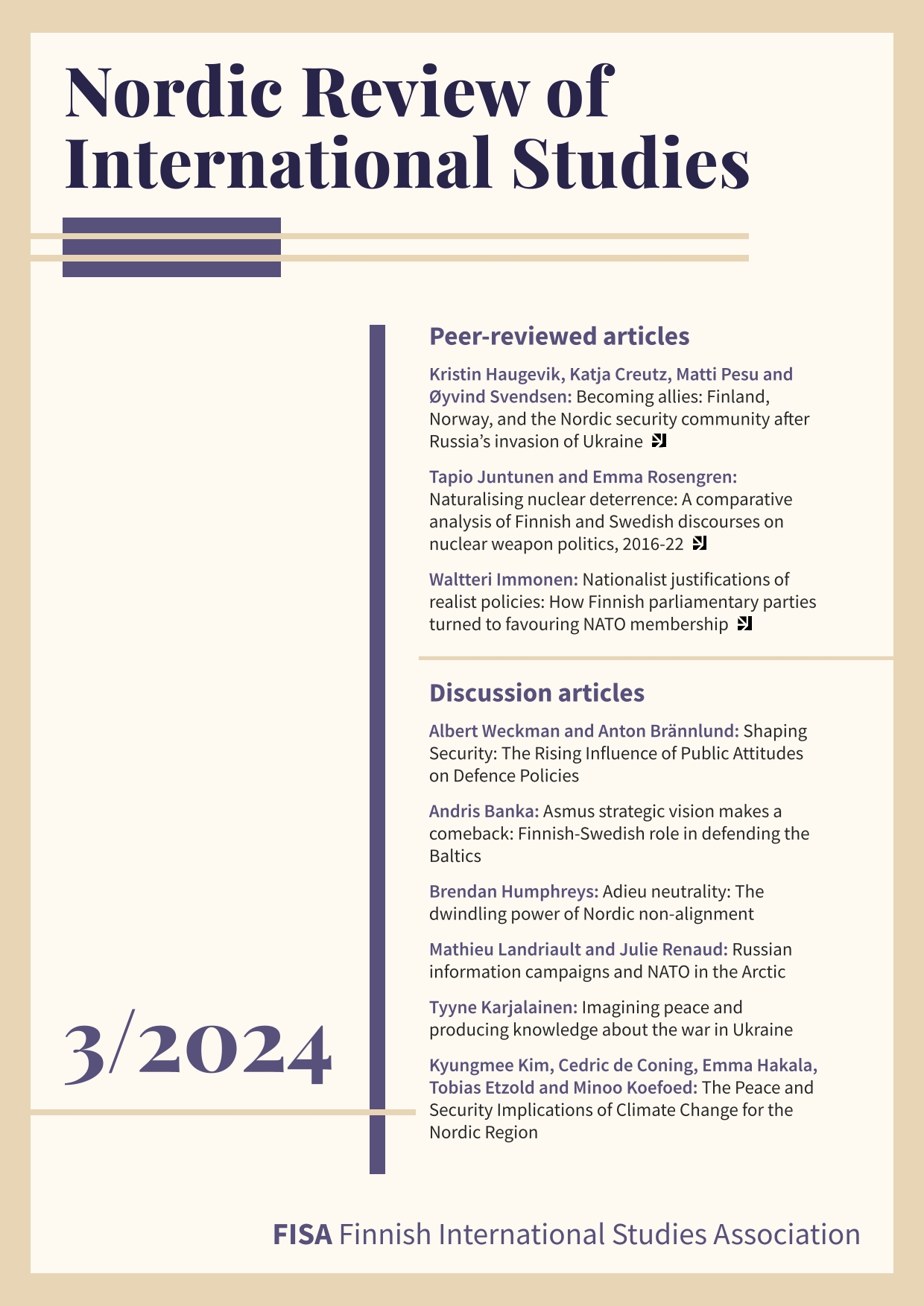Imagining peace and producing knowledge about the war in Ukraine
Keywords:
Ukraine, peace, European security orderAbstract
After two and half years of Russia’s full-scale war on Ukraine, experts around Europe are increasingly tempted to picture peace in Ukraine and security in post-war Europe. Peace researchers have a few useful principles to guide the way. The legacy of Johan Galtung proposes that not just any peace is better than conflict. The kind of peace that is suitable should be defined by those affected by the conflict. To support the emerging debate, this discussion article asks, what do we know about what peace means for Ukrainians? The answer is not that much. Debates about peace and security in Europe have long sidelined perspectives from the ‘periphery’ and Ukrainian voices continue to be dismissed despite the on-going war. Moscow’s perspective, in contrast, has historically been influential in shaping European debates, manifested in the silent acceptance of Russian imperialism in its self described sphere of interest. This discussion article proposes that in order to leave behind the European security order that enabled Russia’s aggression in the first place, the perspective of the ‘peripheries’ should be placed at the forefront of imagining future peace and security in Europe.
Downloads
Published
Issue
Section
License
Copyright (c) 2024 Tyyne Karjalainen

This work is licensed under a Creative Commons Attribution-NonCommercial-NoDerivatives 4.0 International License.
License Terms
-
Attribution — You must give appropriate credit, provide a link to the license, and indicate if changes were made. You may do so in any reasonable manner, but not in any way that suggests the licensor endorses you or your use.
-
NonCommercial — You may not use the material for commercial purposes.
-
NoDerivatives — If you remix, transform, or build upon the material, you may not distribute the modified material.





